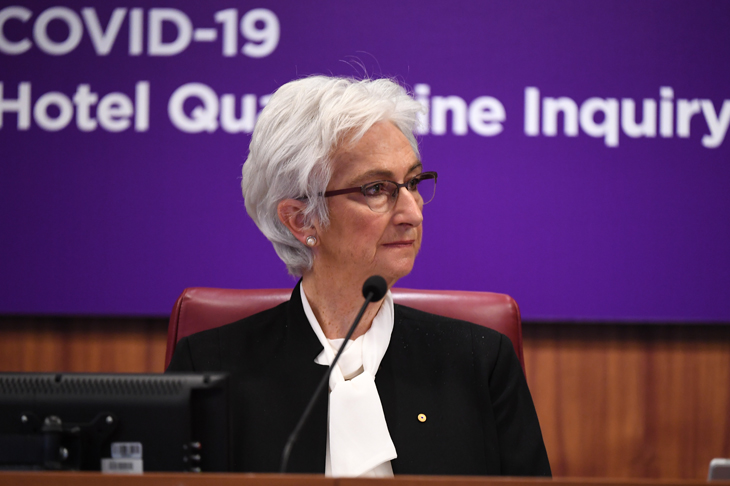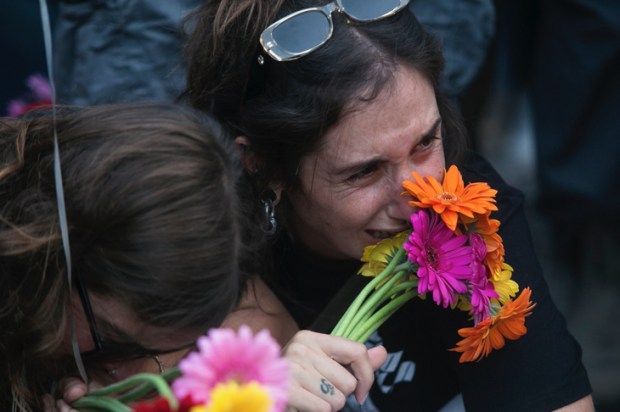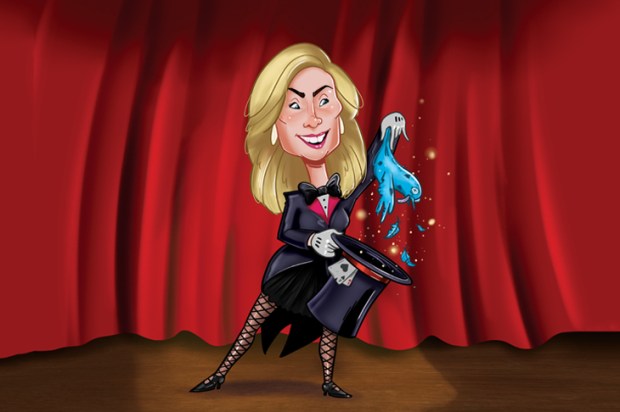Last Friday, Luke Ashford told Victoria’s Hotel Quarantine Inquiry how — when seconded from Parks Victoria and put in charge of quarantine operations at Melbourne hotels — he was given an hour’s training in ‘Equity and Diversity’, but no training in the use of PPE or on infection control.
A clip of his deadpan responses — propelled by the transparent honesty of his answers, the absurdity of the situation and his admission that he resorted to ‘intuition’ — went global.
Already a subscriber? Log in
Subscribe for just $2 a week
Try a month of The Spectator Australia absolutely free and without commitment. Not only that but – if you choose to continue – you’ll pay just $2 a week for your first year.
- Unlimited access to spectator.com.au and app
- The weekly edition on the Spectator Australia app
- Spectator podcasts and newsletters
- Full access to spectator.co.uk
Unlock this article
Helen Dale won the Miles Franklin Award for her first novel, The Hand that Signed the Paper, and read law at Oxford. Her latest novel is Kingdom of the Wicked.
You might disagree with half of it, but you’ll enjoy reading all of it. Try your first month for free, then just $2 a week for the remainder of your first year.














Comments
Don't miss out
Join the conversation with other Spectator Australia readers. Subscribe to leave a comment.
SUBSCRIBEAlready a subscriber? Log in